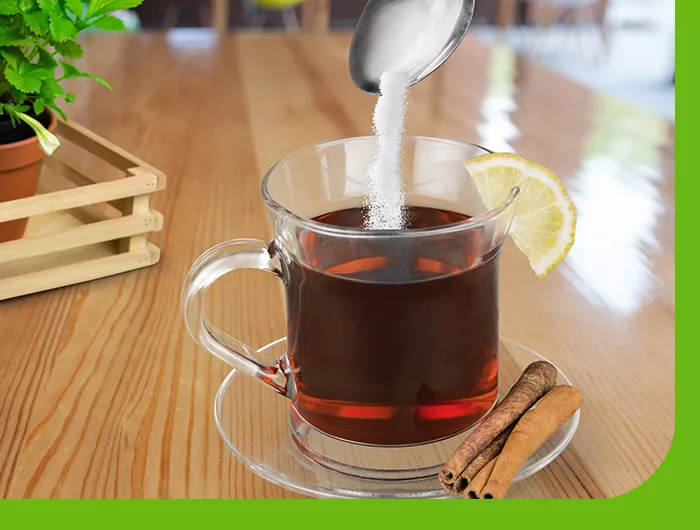What to know about the latest erythritol study

BillionPhotos.com - stock.adobe.com.
“Cleveland Clinic study finds common artificial sweetener linked to higher rates of heart attack and stroke,” announced the press release in February. Until then, the low-calorie sugar alcohol erythritol had appeared to be safe. But the new evidence isn’t as conclusive as it may seem. Here’s a closer look.
“Researchers studied over 4,000 people in the U.S. and Europe and found those with higher blood erythritol levels were at elevated risk of experiencing a major adverse cardiac event such as heart attack, stroke or death,” reported the Cleveland Clinic press release.
But it’s not clear that the erythritol in foods was to blame. Here are some questions the new research raised.
[Want to see how much erythritol is in some popular foods and drinks? Scroll down to the bottom of the article.]
Confounding?
Could something else about people with high levels of erythritol in their blood explain their higher risk of cardiac events? “The researchers adjusted for a number of cardiovascular risk factors, like age, sex, blood cholesterol, and weight,” says Samia Mora, a cardiologist and professor of medicine at Harvard Medical School.
“But I was surprised that they didn’t take into account blood sugar levels, kidney function, diabetes medications, statins, aspirin, or a history of heart failure, stroke, or peripheral vascular disease.”
What’s more, the study reported cardiac events only for the three years after erythritol levels were measured. Yet cardiovascular disease typically takes decades to develop.
“That suggests that these folks already had underlying disease when the study started,” says Kevin Klatt, an assistant research scientist at the University of California, Berkeley.
Another hint that erythritol in foods might not account for the new findings: “Most blood levels in the study were measured from 2001 to 2007, when companies were adding erythritol to fewer foods than now,” notes Klatt.
A biomarker for dysfunction?
What else might explain why people with high blood erythritol are at risk?
“We know that the body synthesizes erythritol,” Klatt points out. It’s made when cells produce the building blocks of DNA, the body’s antioxidant defense system, and more.
“Higher levels could be due to either increased erythritol production or decreased excretion,” explains Klatt.
Sure enough, the link between erythritol levels and cardiovascular events was stronger in people with poorer kidney function.
“So high erythritol levels could be a proxy for the inability to excrete erythritol normally,” says Klatt. ”And oxidative stress caused by cardiovascular disease could also be increasing erythritol.”
In fact, other researchers have called high erythritol levels a “biomarker of metabolic dysfunction” because higher blood erythritol may predict type 2 diabetes and heart disease up to 20 years before they’re diagnosed.
And that—not how much erythritol you eat—could explain the new findings.
Do test tube studies reflect what happens in the body?

The Cleveland Clinic scientists also did a series of lab tests with erythritol.
For example, “using cells in a dish, erythritol made platelets aggregate more when stimulated,” says Klatt.
(Platelets clump together to stop bleeding, but they may also promote blood clots that cause heart attacks.)
“But whether that happens in humans, we don’t know,” he adds.
That’s not all we don’t know.
“The big unknown is whether the erythritol added to foods is causing these cardiac events or whether it’s a bystander,” says Mora. “More research needs to be done.”
Bottom line
Until we know more, don’t panic. But to play it safe, aim for no more than a few grams of erythritol a day. It’s mostly in keto or low-sugar sweets.
How much erythritol is in foods and drinks?
If erythritol is added to a food, it will be in the ingredients list. How many grams? Not all labels say. Some just list “sugar alcohols” on the Nutrition Facts label. In the foods we’ve marked with an asterisk, the number includes other sugar alcohols like glycerin.
More on preventing disease
A snapshot of the latest research on diet, exercise, and more
Preventing Disease

Prediabetes: What may—and may not—help reverse it?
Weight and Health

Can fire cider really boost health and ward off colds?
Supplements

Don’t let these 7 exercise myths fool you
Physical Activity

Cucumbers recalled due to Salmonella outbreak
Food Safety


